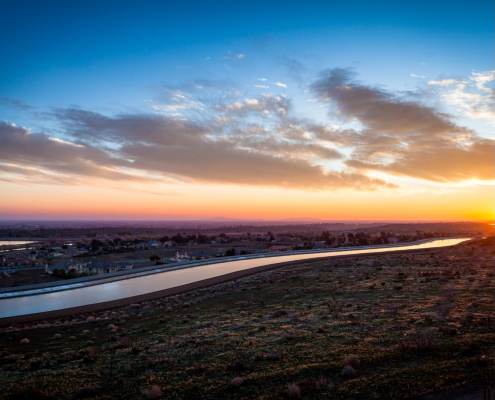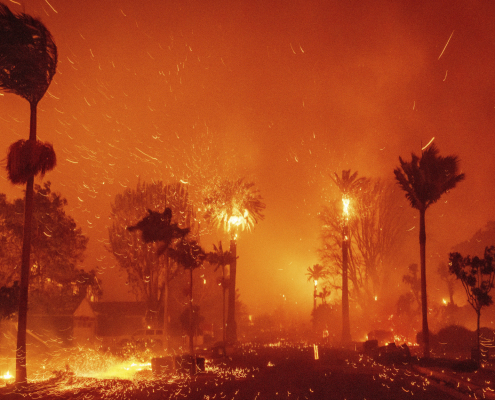With 100,000 miles of sewer lines and more than 900 utility providers and treatment plants, Californians generate roughly four billion gallons of wastewater daily. Funded by the California State and Regional Water Resources Control Boards (Water Boards), LCI and partners from UC Agricultural and Natural Resources Institute, Sacramento State’s Office of Water Programs, and University of Massachusetts Amherst are conducting the first-ever, comprehensive assessment of California’s aging wastewater infrastructure: the Wastewater Needs Assessment (WWNA).
The first phase of the project focuses on convening stakeholders to evaluate the baseline conditions of wastewater infrastructure services in California by:
- Identifying hotspots of wastewater systems of concern;
- Identifying data gaps and possible solutions;
- Identifying disadvantaged and severely disadvantaged communities’ septic-sewer access needs;
- Identifying the broad challenges of sanitation needs for nontraditional communities, tribal sovereignties, and community-level climate change impacts;
- Defining and developing criteria for failing, inadequate, and at-risk systems; and
- Evaluating the costs to improve those systems.
By making sanitation equity issues more apparent and solvable, the baseline will inform prioritizing the policy and investment needed to provide equitable sanitation services. This four-year project that began in July 2023 is an outcome of State Water Board Resolution No. 2022-0019 and Resolution No. 2016-0010, which recognize Californians’ equal and human right to sanitation.
Authors
- Gregory Pierce (PI)
- Ariana Hernandez (PM)
- Grace Harrison (co-PM)
- Anna Young (student researcher)
Advisory Group Meeting Agendas
Funding Acknowledgments
This research was made possible by the California Water Boards to advance their vision to provide abundant clean water for human uses and environmental protection to sustain California’s future.
Initial Phases Deliverables
Advisory Group Members
- Casey Walsh, Professor of Anthropology UC Santa Barbara
- James Fenelon, Professor Center for Indigenous Peoples Studies, at California State University, San Bernardino
- Laura Ramos, Interim Director California Water Institute – Fresno State
- Nell Green Nylen, Senior Research Fellow Wheeler Water Institute, Center for Law, Energy & the Environment, UC Berkeley School of Law
- Ryan Sinclair, Associate Professor Loma Linda University
- Sri Vedachalam, Senior Director, Water Equity and Climate Resilience Corvias Infrastructure Solutions, LLC
- Carlos Moran, Executive Director for North East Trees
- Catherine Coleman Flowers, CEO Center for Rural Enterprise and Environmental Justice
- Erick Orellana, Senior Policy Advocate Community Water Center
- Jasmine Diaz, Assistant Field Manager Rural Community Assistance Corporation
- Keila Villegas, Water Justice Director Orange County Environmental Justice
- Keith Freitas, Retired Tend The Garden, Inc. California
- Miguel Mendez, Associate Environmental Scientist San Francisco Estuary Institute
- Oscar Cisneros, Community Development Specialist Self-Help Enterprises
- Paul Burke, Environment & Climate Justice Chair NAACP of Ventura County
- Sean Bothwell, Executive Director California Coastkeeper Alliance
- Maria Elena, Kennedy President Kennedy Communications, Inc.
- Menu Leddy, Chief Scientific Officer Essential Environmental & Engineering Systems
- Varshini Reddy, Project Engineer EEC Environmental
- Wajiha Noor, Government Affairs Analyst Eastern Municipal Water District
- Jeanne Sabin, Water Compliance Program Manager, NASA Ames Research Center National Aeronautics and Space Administration
- Jesus Montes, Community service El circulo de hombres
- AnMarie Mendoza, Board member Tongva Taraxat Paxaavxa Conservancy
- Debbie Mackey, Executive Officer Central Valley Clean Water Associations
- Jared Voskuhl, Manager of Regulatory Affairs California Association of Sanitation Agencies
- Loch Dreizler, General Manager Santa Ynez Community Services District
- Michael Mckenzie, Project Manager Veolia
- Nicole Greenwood, Wastewater Resource Analyst City of Riverside
- Robert Grantham, General Manager Santa Margarita Water District
- Ryan Smith, Assistant Director of Public Works – Utilities & Environmental Services for the City of Pleasanton, CA
For more information see the Water Boards WWNA webpage and the WWNA project description. Para más información, por favor lea la descripción del proyecto de la WWNA. For questions, contact wwna@luskin.ucla.edu.




